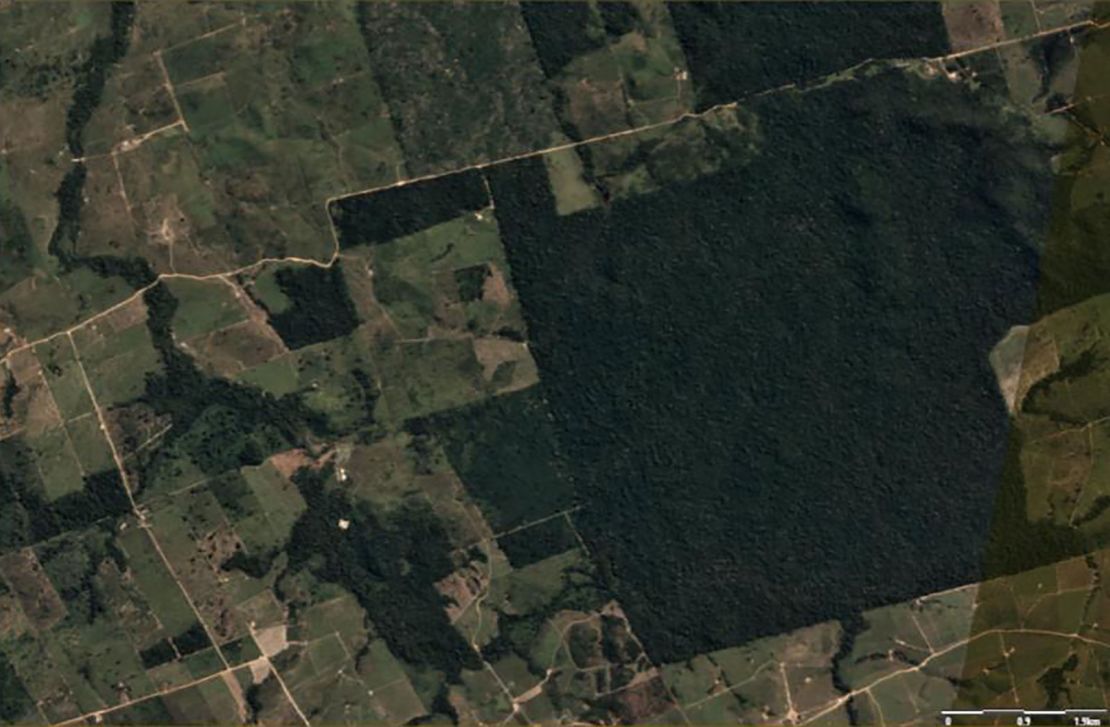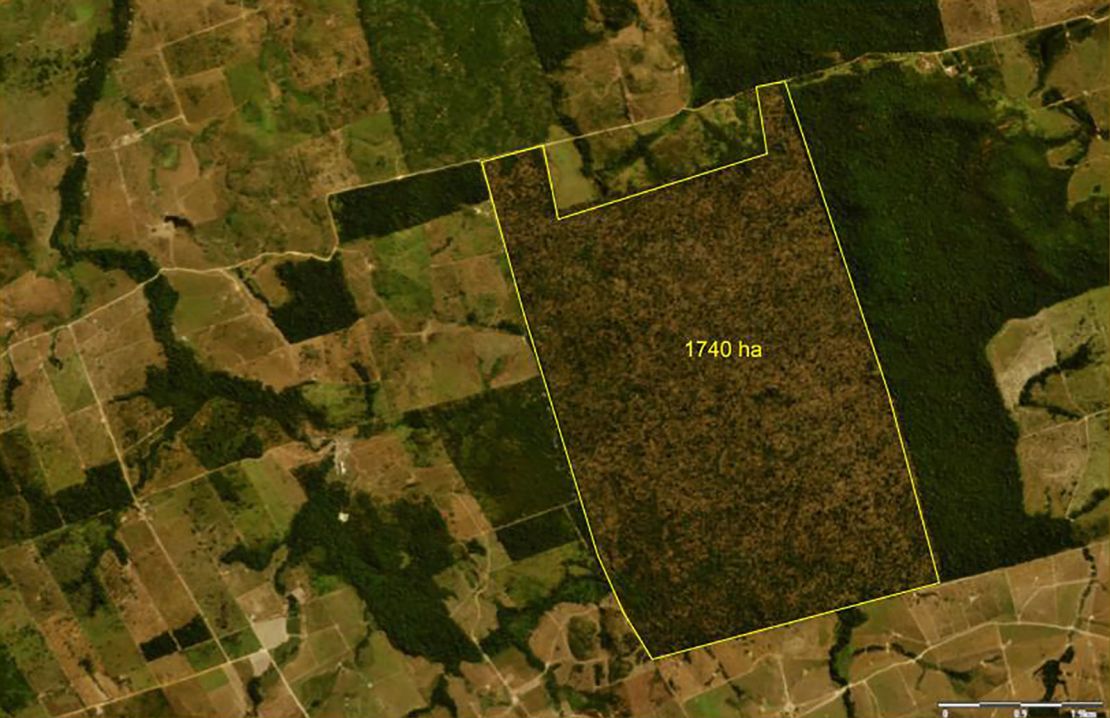The Brazilian government banned fires in the Amazon in mid-July – yet there were far more fires last month than the year before, further degrading one of the world’s most precious natural resources.
Last year’s destructive fires caused international alarm, and this summer could be even worse, according to experts.
The Amazon is considered vital in slowing global warming, and it is home to uncountable species of fauna and flora. Roughly half the size of the United States, it is the largest rainforest on the planet.
In July, the number of fires increased by 28% compared with the same month a year ago, according to Brazil’s National Institute for Space Research (INPE), a federal institute that monitors fires and deforestation.
Such fires are typically used to clear any remaining vegetation from parts of the forest that have already been cut down – preparing the soil for illicit pasture planting and cattle raising. July’s increase occurred despite a federal decree forbidding for 120 days fires for farming or other purposes in the Amazon and the tropical wetland area known as the Pantanal.
There were 6,803 fires in July, vs 5,318 a year ago, according to INPE, making it the worst July since 2017. When compared to the first six months of last year, the total fire rates for Brazil’s Amazon habitat known as the biome, which spreads through 9 states, had actually dropped by 7.6% in 2020. But, data for the two largest states – Amazonas and Pará – showed over 2,000 fires in the period, an increase of 35% from a year ago.
Since President Jair Bolsonaro took office in 2019, deforestation has been on the increase with a nearly 30% jump in the number of fires compared to 2018, according to INPE.


The Bolsonaro administration has been under pressure to control deforestation since June, when 34 major international investors threatened to divest from Brazilian companies if the government didn’t act to curb the destruction of the rainforest. In response, it issued the fires’ ban on July 16.
Earlier in the year, the government launched the Green Brazil Operation 2, a military mission headed by the Vice President Hamilton Mour?o with the aim of curbing illegal deforestation. “Our goal is to take the fires in the second half (of the year) to the minimum acceptable so that we make it very clear to the rest of Brazil and to the world our commitment to the preservation of the Amazon,” Mour?o said at a press conference in early June.
At the same event, the Vice President boasted about the partial achievements of the operation. “If we compare the rate of deforestation in May this year with May last year, the fall is almost total.”
But he was wrong. According to INPE, 830 square kilometers (approximately 320 square miles) were deforested in May, a rise of 12% from a year earlier.
It mirrors an overall increase in the rate of deforestation, despite the government’s claims of success.
The Army, citing its role in Green Brazil Operation 2, said it worked with an average of 3,000 people in the field, including federal and state environmental agencies and police forces, to complete nearly 18,000 inspections, patrols and searches at over 30 locations this year. The initiative led to the confiscation of 28,000 cubic meters of wood,180 vehicles, 25 boats, 12 aircraft, and the imposition of 407 million reais (about $80 million) in fines, the Army said.
Yet, since January this year, 34% more Amazonian land was deforested compared to the same period last year, according to INPE. It was the highest rate since 2015, with over 2,000 square kilometers of forest being destroyed, the equivalent of twice the area of New York City.
No trust in the government
Tasso Azevedo, coordinator of MapBiomas – an organization that maps the soil coverage and the land use change in Brazil – says the government cannot be trusted when it comes to protecting the environment.
In May, a video of a governmental meeting showed the Environmental Minister Ricardo Salles saying that the government should take advantage of the media’s focus on the Covid-19 pandemic to loosen the environmental restrictions. The video from April 22 was disclosed during an investigation by the Supreme Court into allegations that Bolsonaro was trying to interfere with the Federal Police.
The quote from Salles caught the media’s attention. “There is a need to have an effort on our side here, while we are at this moment of tranquility in terms of press coverage, because it only talks about Covid, and let the cattle herd run and change all the rules and simplifying standards,” he said.
Azevedo recalled that a decree issued on August 29 of 2019 that prohibited fires in the Amazon for 60 days did have some results at that time. “But as the government has continued showing signs, consistently, that it doesn’t want to control the Amazon deforestation [and] so apparently nobody is giving attention to the moratorium this year,” Azevedo said.
That view is shared by Paulo Barreto, senior researcher in the Institute of People and the Environment of the Amazon (Imazon), one of the most important research institutes in the region.
Barreto said that even sending the Army to curb deforestation isn’t enough at this point. “It isn’t enough just to inspect. To be effective, it is necessary to inspect, to judge, and to apply the penalty, and these two final parts of the process have been weak,” Barreto said.
Bolsonaro hasn’t helped. The President has repeatedly mentioned he wanted to end the “fine industry” promoted by the government’s environmental agency, Ibama.
“The countryman cannot be terrified by Ibama’s inspection,” he said at an event in June 2019. “We had the lowest percentage of fines [since he is in office] in the field and this will continue to decrease. We will end this fine industry in the countryside.”
Ibama issues fines to farmers and others who light fires or use other tactics to clear the forest.
Bolsonaro’s attitude “only embolden proponents of deforestation,” Baretto said.
They also are bolstered, according to Baretto, by Bolsonaro’s criticism of Ibama inspectors who burn loggers’ equipment and vehicles.
Under a 2008 law, officials can burn forbidden equipment in isolated areas where it would be hard to remove it otherwise. But in November 2019, Bolsonaro met a group of illegal miners in front of the presidential residency and promised to forbid this practice. “We are going to fix this,” he said. “If it got in (the machine), it will get out,” he said in front of the Alvorada Palace.
Bolsonaro further questioned the group: “Who is the guy from Ibama who was doing this in that state? If you give me the information, I can…” said Bolsonaro, without completing the sentence.
The legislation authorizing Ibama to burn any equipment found in illegally occupied sites remains in effect, but the agency has been suffering severe cuts on their budget and staff, with high-ranking managers and coordinators being replaced.
It led to the Federal Prosecutor’s Office opening an administrative misconduct action against Environment Minister Salles over the alleged monitoring and censoring of Ibama staff, budget cuts and harassment of inspectors.
According to Barreto, in order to truly protect the Amazon, Brazil’s government must penalize major loggers. “It would be also important to start to use other kinds of sanctions, such as the blocking of bank accounts and assets,” he added. However, according to a study by InfoAmazonia from October 2019 only 3% of the fines imposed by Ibama were actually paid.
CNN reached out to the Vice President office, which is responsible for the battle against deforestation, for a comment on the strategy but it did not respond.
However, in his weekly radio show on Monday, Vice President Mourao acknowledged the challenge posed by the fires in the Amazon.
“Every year, when the period of drought arrives the risk (of fires) increases,” he said. “Besides destroying the native vegetation, it kills animals, causes problems to people’s lives and here it causes respiratory problems. And at the moment we are facing this coronavirus pandemic, that can be aggravated by the smoke coming from the forests. And of course, serious financial damage not only to the people who live in the Amazon but our country as a whole.”
And if July was bad this year, August will only be worse, experts predict. “We had more deforestation [in the last months], so the tendency is to have more fires also,” Baretto said.
“The deforestation keeps rising for 14 months in a row, and all this material is ready to burn.” Azevedo said.
“We can expect a lot of fires in the coming weeks. The conditions are there to the tragedy we feared, of mixing fire, smoke and Covid-19.”

